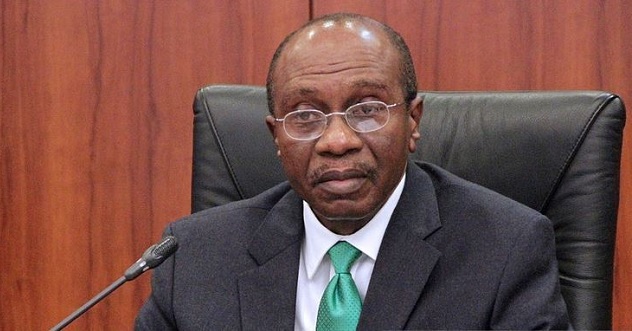Business
BUSINESS REVIEW: Should we embrace CBN’s new withdrawal and lodgment percentage policy?

The CBN, in what some have labeled an intended ridiculous extortion, in a statement issued through its Payments System Management Department announced that the new policy on cash-based transactions stipulates a cash handling charge on daily cash withdrawals that exceed N500,000 for individuals and N3,000,000 for corporate bodies.
Although, the CBN claimed, in the circular as addressed to Deposit Money Banks, that the decision was reached towards achieving its cashless state ambition; the rather cold reception from the public, however, suggests either the CBN or the criticizing citizenry is missing the mark.
Why again?
The CBN, in recent times, has appeared in the news more than any other government agency or organization. The recent Forex ban on food importation remains fresh and debates are still ongoing as whether it is not a case of policy failure.
One of the arguments is the one refuting the federal government’s claim of Nigeria being food secured on the premises of counter food reports on Global Report on Food Crisis indicating that a number of Nigerian states still suffer shortage in supply of food, leading to high level malnutrition in states like Katsina (the president’s home state) and Zamfara to mention but a few.
Is the government always wrong?
The cross question we found ourselves answering almost all the time is whether the government is always wrong. On a policy move, the government can be wrong or right, significantly depending on what policy and timeliness.
It’s interesting that most policies from the government are right when developed upon quality data appraisals. Usually, the problem is the timing or a case where little or no orientation and campaign on public awareness has been done. Hence, as analysts, we condemn out rightly.
Like the claim that Nigeria is food secured, it’s shocking to discover how quality research didn’t back claims, and was even more shameful to see the president’s state in the list of non-performing states. This is not the space to appraise the figures.
However, with the new CBN’s policy, no one is on the neck of anyone. There are too manynaira notes held hostage by the masses unduly. Transaction, with the advancement of technology, has been a lot easier and convenient: The cashless, the better and even safer.
Life cycle of a typical Naira note
Day in day out, naira notes exchange hands. Here is an illustration. Off, it goes from the provision retailer in the neighborhood to the bus conductor as payment for transport. In the afternoon, between successive trips, it makes way to the food canteen. The food canteen attendant picks it up and then hands it’s over to the grocery seller in the market. It moves on and on until it reaches the pharmacist by the road side and then somehow to the beggar in the street. And, the cycle continues.
Luckily, the naira note may find its way to the gas station where it finally heads to the bank for a long holiday from public handling. Imagine the trend. Little wonder Nigeria has about the poorest currency notes in the world. The sight of some hundred naira notes is a complete disgust.
The policy according to Emefiele
While recently apologizing for the inconveniences that the new policy might cause, the Governor of the CBN, Godwin Emefiele, in his address to the public noted that the policy will serve to position “Nigerian as a safe and credible destination for financial transaction across the world.”According to him, the GIABA, which is the Inter-Governmental Action Group against Money Laundering in West Africa will be in Nigeria to assess the rate at which Nigeria has embraced anti-money laundry and CFT regime.
Hence, it is important to display that Nigeria is indeed in conformity with practices as enshrined in the anti-money laundry and CFA laws. This way, money cards issued in Nigeria can also be passed anywhere in the world without hesitation.
The cashless alternatives
- Use of POS
- Bank transfers
- Mobile Money
- USSD and QR codes
Understanding the policy
The policy simply spells out that managing the currency, on the part of the CBN, is expensive, however, anyone who feels going the cash way is fine should be ready to pay for it. With cash, the apex bank has to print, re-issue torn notes, transport from bank to bank and store bulk after production or after deposits by the public.
In a cashless situation, on the other hand, payments via alternative option like the mobile transfer can be made and everyone can have a real time hold of his/her financial records. This way we have fewer notes in circulation –fewer notes in circulation means less management cost.
Cashless is the future
Until Nigeria embraces policy as this, the nation will not adequately cut down on cost going into the management of currency. And, only when this is done can the nation place itself on the road toward attaining a cashless society as countries like Canada, Sweden, France, the UK, Chinaamong others are well ahead on the same road.
Before long, Nigeria can be like Germany, where a third of transactions by consumers are carried out via various cashless methods –including contactless and mobile devices.
Join the conversation
Support Ripples Nigeria, hold up solutions journalism
Balanced, fearless journalism driven by data comes at huge financial costs.
As a media platform, we hold leadership accountable and will not trade the right to press freedom and free speech for a piece of cake.
If you like what we do, and are ready to uphold solutions journalism, kindly donate to the Ripples Nigeria cause.
Your support would help to ensure that citizens and institutions continue to have free access to credible and reliable information for societal development.






















